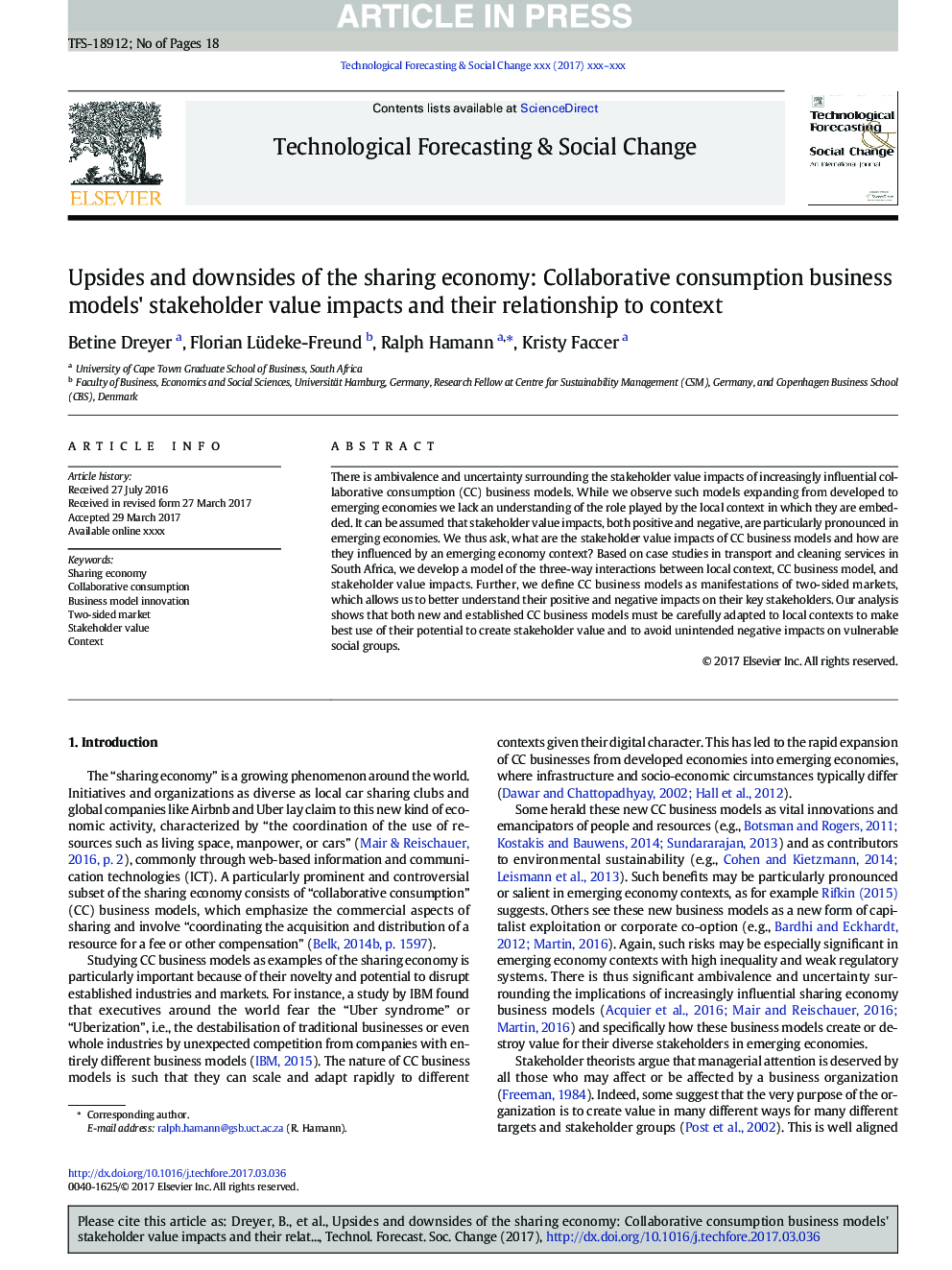| Article ID | Journal | Published Year | Pages | File Type |
|---|---|---|---|---|
| 7255937 | Technological Forecasting and Social Change | 2017 | 18 Pages |
Abstract
There is ambivalence and uncertainty surrounding the stakeholder value impacts of increasingly influential collaborative consumption (CC) business models. While we observe such models expanding from developed to emerging economies we lack an understanding of the role played by the local context in which they are embedded. It can be assumed that stakeholder value impacts, both positive and negative, are particularly pronounced in emerging economies. We thus ask, what are the stakeholder value impacts of CC business models and how are they influenced by an emerging economy context? Based on case studies in transport and cleaning services in South Africa, we develop a model of the three-way interactions between local context, CC business model, and stakeholder value impacts. Further, we define CC business models as manifestations of two-sided markets, which allows us to better understand their positive and negative impacts on their key stakeholders. Our analysis shows that both new and established CC business models must be carefully adapted to local contexts to make best use of their potential to create stakeholder value and to avoid unintended negative impacts on vulnerable social groups.
Related Topics
Social Sciences and Humanities
Business, Management and Accounting
Business and International Management
Authors
Betine Dreyer, Florian Lüdeke-Freund, Ralph Hamann, Kristy Faccer,
